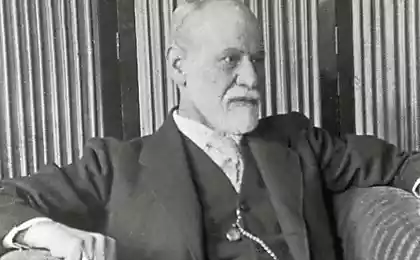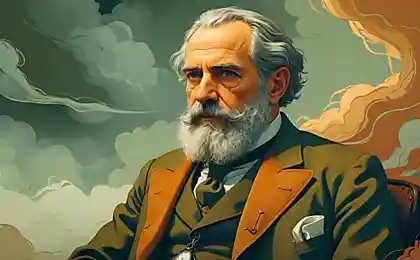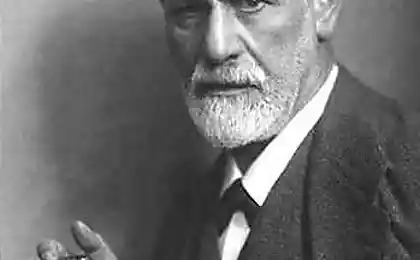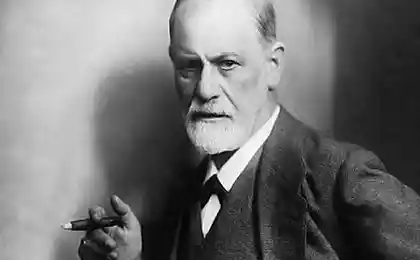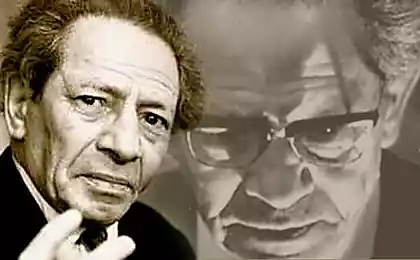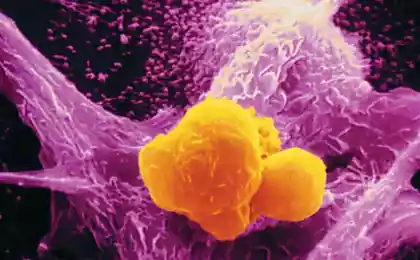578
In less than 100 years: the return of the theory of the unconscious Sigmund Freud
After almost a century of ridicule, the ideas of Freud are starting to rethink, because they can shed light on many of the mysteries of medicine.
The way of the theory of the unconscious was a pretty thorny since, as Freud almost a hundred years ago first described his discovery. Skeptics scoff at the mere mention of the unconscious, believing this theory is the same absurdity as penis envy. Other, more perceptive, realizing that the father of psychoanalysis managed to stumble upon something important, yet prefer to stay away and not to associate themselves with a dubious reputation of Freud, so they operate with such vague terms as subliminal or subconscious. After so many years it might seem that the shelf life theory of the unconscious has expired, but as it turns out, her time has just come.
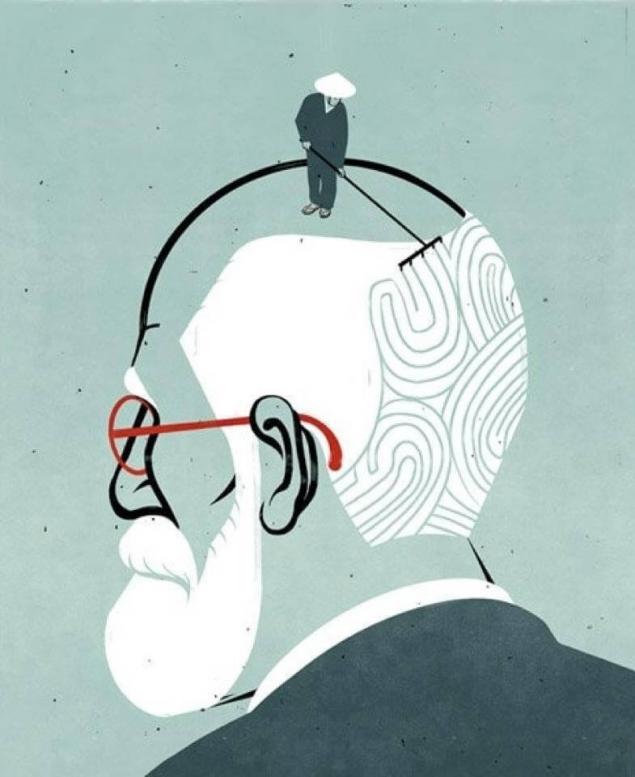
And the reasons are two: science and necessity.
First, neuroscience has shown conclusively that man is not even close to the idea of what's going on in his head. Psychoanalyst and Professor of neuropsychology mark Solms, one of the first scientists involved in experimental studies of psychoanalytic discoveries, it is often claimed that consciousness is able to hold the attention of only 6-7 units at once, while the rest of the nervous system operates by the thousands. In light of this will be shaped by the perversion to deny the fact that much of the physical processes of our lives lies beyond the border of our understanding, especially if to take into account such a physical experience as dreams or reservations, as well as early childhood experience that defies memory, but actively involved in shaping the adult life.
Today actively discussionsa questions about whether Freud described the mechanisms of the unconscious or psychodynamic processes, as they are sometimes called. For example, the displacement – the purposeful forgetting of certain memories that subsequently returns in the form of neurotic or psychotic symptoms. Freud claimed that the displacement of the exposed unacceptable to consciousness, extremely disturbing thoughts and feelings, whereas cognitive psychology stubbornly resisted recognition of the validity of this idea, preferring a static model of the unconscious content: it's over, memories can be lost, and Yes, they can be associated with certain symptoms, but these symptoms cannot be interpreted in this symbolic way that Freud and his followers have invented and called "treatment word."
Meanwhile, science is closer to challenge this belief. A series of studies have been devoted to the study of amnestic States in which subjects first created the memories, and then denied them, claiming that I can't remember what happened really. It was also demonstrated the symbolic meaning of fictional recollections (confabulation), which at the time, wrote Freud. But there are still people suffering from paraphasia – officially recognized as a syndrome in which some words are forgotten and replaced by other words. These substitutions are carried out under the same patterns described by Freud for dreams and reservations. All this suggests that the process of displacement is a key characteristic of the unconscious.
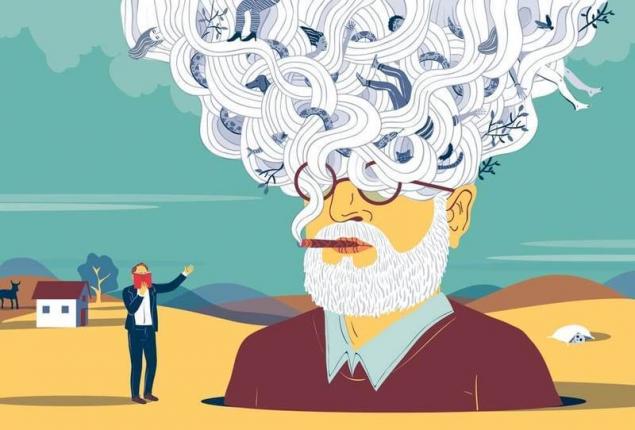
So, the science. Now let's talk about the second reason to study more closely the unconscious medicine. There are many common, but inexplicable from the point of view of medicine symptoms. Research by neurologists suggests that such symptoms suffers a third of patients who made complaints to the doctors General practitioners. The suffering of these patients are real, and they are not able to cope with her illness, although she has no biological basis. Carried out in 2005 in America, the study found that psychosomatic illnesses cost the budget $ 250 million annually –money spent on fruitless diagnosis and treatment of biologically non-existent disease. It is obvious that alternatives to work with these disorders are urgently needed. For example, we can study them from the point of view of the theory of the unconscious as a conversion (or hysteria) is a translation of mental suffering to bodily symptoms.
Freud described the mechanism of the formation of bodily symptoms in hysteria today are much more than we used to think. Most neurologists have their practice patients living with serious life and physical limitations due to violent and sudden convulsions, although numerous medical examinations did not reveal any pathological activity in the brain. Another large cohort of patients suffer from a similarly inexplicable from the point of view of diagnostic medicine of asthma attacks, pain, blindness, paralysis. Yes, we can agree that so far there is a fairly developed and reliable technologies in order to look inside the brain and see all his secret engineering, but we must admit that scientific medicine is hardly coping with the diagnosis, and explain the symptoms and say nothing.
The idea of Freud that the basis of conversion disorder is a traumatic or perceived as traumatic experience today confirms themselves in the daily work of clinicians. Most recently, discussions in the Freud Museum in London, neuropsychobiology Richard Kanaan and psychotherapist Stephanie Howlett presented clinical cases (a careful study of which, of course, took time, money, and special skills), when they were able to set otdalennoe and the meaning of individual symptoms. In such cases, an interdisciplinary approach to treatment involving the cooperation of psychologists, psychotherapists and neurologists. Canaan believes that if at the time Freud when describing their observations used the term post-traumatic stress disorder, instead of the term hysteria, he would go down in history as a hero-discoverer.
Also interesting: an Interesting test of Sigmund Freud — find out yourself
10 facts about Sigmund Freud
No one argues that the unconscious is something mystical in nature, but is really a complex and challenging condition. Freud repeatedly emphasized that work with the unconscious requires a rigorous precisely because it is unconscious it is beyond the borders of your conscious attention and understanding. In the future psychoanalysts themselves radically revised initial conclusions and findings of Freud to today, once again come to an understanding of the need to bring this hidden, but sometimes devastatingly powerful part of ourselves, of our human nature.
Freud was convinced that his designs are only the beginning. The scientific advances of recent years and the most urgent needs of our time call to ensure that the work of Freud was continued.published
The author of the original article: Mark Vernon, "100 years old and making a comeback – Freud''s theories of the unconscious"
P. S. And remember, just changing your mind — together we change the world! ©
Source: tolkoksana.com/2016/02/01/%D0%BD%D0%B5-%D0%BF%D1%80%D0%BE%D1%88%D0%BB%D0%BE-%D0%B8-100-%D0%BB%D0%B5%D1%82-%D0%B2%D0%BE%D0%B7%D0%B2%D1%80%D0%B0%D1%89%D0%B5%D0%BD%D0%B8%D0%B5-%D1%82%D0%B5%D0%BE%D1%80%D0%B8%D0%B8-%D0%B1%D0%B5/#more-1008
The way of the theory of the unconscious was a pretty thorny since, as Freud almost a hundred years ago first described his discovery. Skeptics scoff at the mere mention of the unconscious, believing this theory is the same absurdity as penis envy. Other, more perceptive, realizing that the father of psychoanalysis managed to stumble upon something important, yet prefer to stay away and not to associate themselves with a dubious reputation of Freud, so they operate with such vague terms as subliminal or subconscious. After so many years it might seem that the shelf life theory of the unconscious has expired, but as it turns out, her time has just come.

And the reasons are two: science and necessity.
First, neuroscience has shown conclusively that man is not even close to the idea of what's going on in his head. Psychoanalyst and Professor of neuropsychology mark Solms, one of the first scientists involved in experimental studies of psychoanalytic discoveries, it is often claimed that consciousness is able to hold the attention of only 6-7 units at once, while the rest of the nervous system operates by the thousands. In light of this will be shaped by the perversion to deny the fact that much of the physical processes of our lives lies beyond the border of our understanding, especially if to take into account such a physical experience as dreams or reservations, as well as early childhood experience that defies memory, but actively involved in shaping the adult life.
Today actively discussionsa questions about whether Freud described the mechanisms of the unconscious or psychodynamic processes, as they are sometimes called. For example, the displacement – the purposeful forgetting of certain memories that subsequently returns in the form of neurotic or psychotic symptoms. Freud claimed that the displacement of the exposed unacceptable to consciousness, extremely disturbing thoughts and feelings, whereas cognitive psychology stubbornly resisted recognition of the validity of this idea, preferring a static model of the unconscious content: it's over, memories can be lost, and Yes, they can be associated with certain symptoms, but these symptoms cannot be interpreted in this symbolic way that Freud and his followers have invented and called "treatment word."
Meanwhile, science is closer to challenge this belief. A series of studies have been devoted to the study of amnestic States in which subjects first created the memories, and then denied them, claiming that I can't remember what happened really. It was also demonstrated the symbolic meaning of fictional recollections (confabulation), which at the time, wrote Freud. But there are still people suffering from paraphasia – officially recognized as a syndrome in which some words are forgotten and replaced by other words. These substitutions are carried out under the same patterns described by Freud for dreams and reservations. All this suggests that the process of displacement is a key characteristic of the unconscious.

So, the science. Now let's talk about the second reason to study more closely the unconscious medicine. There are many common, but inexplicable from the point of view of medicine symptoms. Research by neurologists suggests that such symptoms suffers a third of patients who made complaints to the doctors General practitioners. The suffering of these patients are real, and they are not able to cope with her illness, although she has no biological basis. Carried out in 2005 in America, the study found that psychosomatic illnesses cost the budget $ 250 million annually –money spent on fruitless diagnosis and treatment of biologically non-existent disease. It is obvious that alternatives to work with these disorders are urgently needed. For example, we can study them from the point of view of the theory of the unconscious as a conversion (or hysteria) is a translation of mental suffering to bodily symptoms.
Freud described the mechanism of the formation of bodily symptoms in hysteria today are much more than we used to think. Most neurologists have their practice patients living with serious life and physical limitations due to violent and sudden convulsions, although numerous medical examinations did not reveal any pathological activity in the brain. Another large cohort of patients suffer from a similarly inexplicable from the point of view of diagnostic medicine of asthma attacks, pain, blindness, paralysis. Yes, we can agree that so far there is a fairly developed and reliable technologies in order to look inside the brain and see all his secret engineering, but we must admit that scientific medicine is hardly coping with the diagnosis, and explain the symptoms and say nothing.
The idea of Freud that the basis of conversion disorder is a traumatic or perceived as traumatic experience today confirms themselves in the daily work of clinicians. Most recently, discussions in the Freud Museum in London, neuropsychobiology Richard Kanaan and psychotherapist Stephanie Howlett presented clinical cases (a careful study of which, of course, took time, money, and special skills), when they were able to set otdalennoe and the meaning of individual symptoms. In such cases, an interdisciplinary approach to treatment involving the cooperation of psychologists, psychotherapists and neurologists. Canaan believes that if at the time Freud when describing their observations used the term post-traumatic stress disorder, instead of the term hysteria, he would go down in history as a hero-discoverer.
Also interesting: an Interesting test of Sigmund Freud — find out yourself
10 facts about Sigmund Freud
No one argues that the unconscious is something mystical in nature, but is really a complex and challenging condition. Freud repeatedly emphasized that work with the unconscious requires a rigorous precisely because it is unconscious it is beyond the borders of your conscious attention and understanding. In the future psychoanalysts themselves radically revised initial conclusions and findings of Freud to today, once again come to an understanding of the need to bring this hidden, but sometimes devastatingly powerful part of ourselves, of our human nature.
Freud was convinced that his designs are only the beginning. The scientific advances of recent years and the most urgent needs of our time call to ensure that the work of Freud was continued.published
The author of the original article: Mark Vernon, "100 years old and making a comeback – Freud''s theories of the unconscious"
P. S. And remember, just changing your mind — together we change the world! ©
Source: tolkoksana.com/2016/02/01/%D0%BD%D0%B5-%D0%BF%D1%80%D0%BE%D1%88%D0%BB%D0%BE-%D0%B8-100-%D0%BB%D0%B5%D1%82-%D0%B2%D0%BE%D0%B7%D0%B2%D1%80%D0%B0%D1%89%D0%B5%D0%BD%D0%B8%D0%B5-%D1%82%D0%B5%D0%BE%D1%80%D0%B8%D0%B8-%D0%B1%D0%B5/#more-1008
Jim Davis: how to "pump" your skills using your imagination
How to choose an uninterruptable power supply for the heating system a country house
